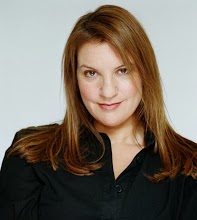Which is why, to celebrate the novel’s completion, it seemed only fitting that I recuperate by going to the “Salon du Chocolat” in Paris last week. Chocolate, after all, is a health food.
The Salon du Chocolat is a global chocolate exposition that takes place in various cities over the course of the year. Imagine a football field full of chocolate makers, chocolate sellers, chocolate artisans, chocolate bakers. Now, imagine them handing out free samples. This is the Salon. It’s the Olympics of Chocolate. CocoaCom. Chocoholics’ Woodstock. Cacaopalooza.
In Paris, the expo promised to be the most spectacular yet – except that the French, being, well, French, seemed unable to resist philosophizing about it. “The 2013 Salon du Chocolat,” they announced, “will focus on a question that is both culinary and existential: Why is chocolate so magical?”
“Why is chocolate so magical?” Because it’s chocolate, that’s why. Does anyone really need to intellectualize this further? Bad enough we have those pretentious “green tea” and “anise-cardamom” chocolates now, trying to ruin the pleasure for everyone by elevating it to some sort of haute cuisine.
Yet shallow, New Yorkaise grumblings aside, I am pleased to report that the Salon du Chocolat was spectacular – and joyously un-pedantic. Beyond the enormous airplane sculpted out of chocolate that graced the front entrance were more than 500 chocolate vendors and patisseries, each with their own dazzling displays and specialties. Perhaps only the Parisians could manage to pull off a pure chocolate orgy without it seeming quite like the feeding frenzy it was.
There were chocolate waterfalls and chocolate fountains. A huge sort of Trajan’s column constructed entirely out of Leonidas’ chocolates, flanked by centurions’ heads molded completely in dark chocolate. There were chocolate-making demonstrations (perhaps only the French, too, would attend a cooking demo as if it were a rock concert; the open-auditorium was standing-room-only to watch a lone chef in a toque). Among the recipes prepared? Foie gras au Cacao with Croze-Hermitage. So much for my ever joining PETA.
Chocolate “animations” featured dances and musical recitals and ceremonies staged by all the various chocolate-producing countries and cultures in attendance. There was chocolate beer. Chocolate tea. Eco-friendly chocolate. Sugar-free chocolate. Fair trade chocolate from Cacao Planete, Haiti, the Cote D’Ivoire, Sao Tome – some brokered by an ethical chocolate trader who works to ensure that local profits go to help schoolchildren. http://www.globalpost.com/dispatch/news/afp/131106/commodities-trader-turns-ethical-cocoa-bean-buyer
There was chocolate liquor and wines made specifically to be paired with chocolate. A “florist” selling bouquets of chocolate roses and daisies set out in great pails like real flowers on a Parisian street corner. Why, there was even -- be still my heart -- a CHOCOLATE BOOKSTORE. This was a shop within the hall dedicated only to books on the subject of – wait for it – chocolate!
And if this weren’t enough, a booth nearby even sold champagne corks! Dark chocolate champagne corks filled with champagne. Oooh. After sampling one, then two, then three, I thought it only polite to purchase four bagfuls. Tellingly, the producer is named CHOCOGIL. I was told the “Gil” is for the chocolate-maker himself, Gilbert Broisson. But you and I both know: The truth is, it’s for Gilman.(Check ‘em out at http://www.chocogil.com).
 Yet the piece de resistence (and you’ll have to forgive me – for the life of me I cannot figure out how to incorporate French accents into my text, even though the Amazing Bob has only shown me about half a dozen times) was, unsurprisingly, haute couture. Evening dresses and ball gowns constructed completely from chocolate. Extraordinary, fabulous garments that models could actually wear – and did – in a very Parisian, very chocolate runway show.
Yet the piece de resistence (and you’ll have to forgive me – for the life of me I cannot figure out how to incorporate French accents into my text, even though the Amazing Bob has only shown me about half a dozen times) was, unsurprisingly, haute couture. Evening dresses and ball gowns constructed completely from chocolate. Extraordinary, fabulous garments that models could actually wear – and did – in a very Parisian, very chocolate runway show.These were dresses, of course, that I would kill to wear yet never fit into – probably because I eat so much goddamn chocolate. And the dress, I suppose, would ultimately be wasted on me. Because I’d most likely eat that, too.
To be fair, there was in fact a larger, worldlier, more sobering trend on display as well. Cacao is grown primarily in developing nations such as Tanzania. Ecuador. Peru. Indonesia. Ghana. Many of these countries were represented at the Porte de Versailles. Chocolate makers from Madagascar, in fact, sold beautiful chocolate bars wrapped in portraits made by local artists of different indigenous tribal members from their nation: Works of art packaged in more works of art.
Yet their booths were relegated to the “side streets” of the hall. The prime real estate in the pavilion, closest to the center stage, was occupied by the big international corporate chocolate producers like Godiva and Leonidas – or by the most high-end, exclusive French chocolate makers like Michel Cluizel, Pierre Herme, Hugo & Victor, whose luxury chocolates are crafted, displayed and packaged as beautifully as jewelry -- and seemed to cost nearly as much.
As with so many other valuable commodities on this planet, the countries that actually produce cocoa beans benefit far less than the countries that buy, consume, and commodify them. At the end of the day, the spotlight of the salon was not really just on chocolate, but on wealth. Even at “Le Salon du Chocolat,” it seems, the great imbalances of our world cannot be candy-coated.





